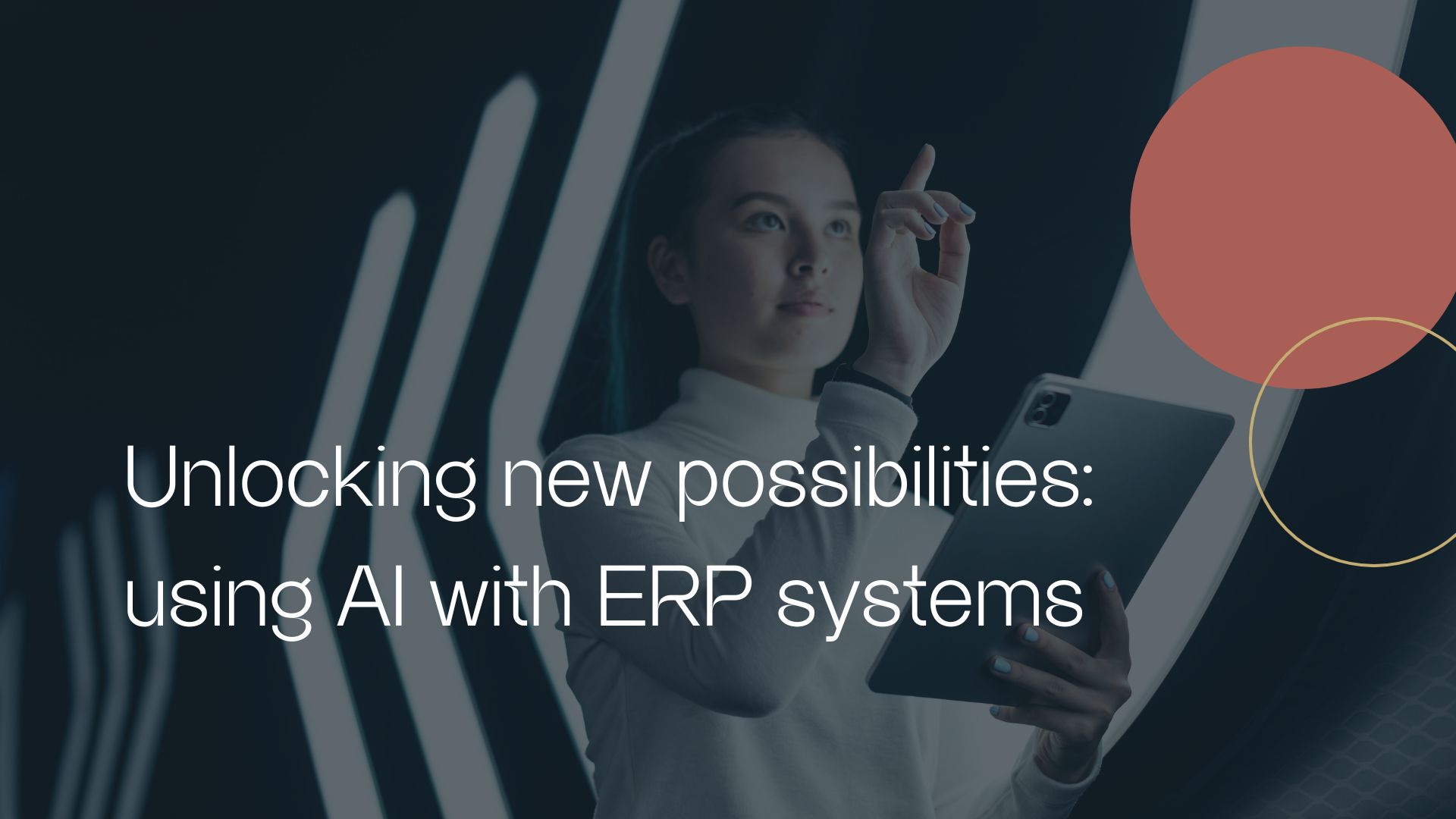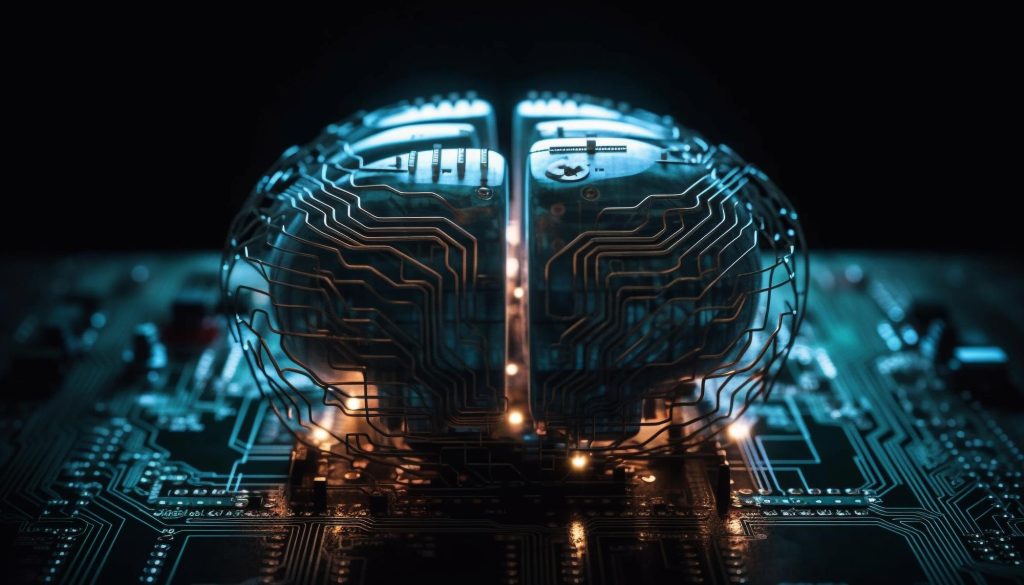
Unlocking new possibilities: using AI with ERP systems
AI can help ERP systems to improve operational efficiency.
Since Chat GPT was launched back in November 2022, companies have been thrown into artificial intelligence (AI) whirlwind that has put their staff and business in a fast-track environment to learn and use it.
Forbes Advisor ran a series of surveys to find out how businesses use AI today, and 53% of companies surveyed apply AI to improve production processes, while 51% adopt AI for process automation. But how can AI enhance your ERP systems? There is the potential to improve operational efficiency, drive innovation, automate processes and strengthen security, to name a few.
Process Automation and Optimisation
Artificial Intelligence can help ERP systems streamline processes, reduce manual effort, and improve operational efficiency in routine tasks like data entry and inventory management.
Other applications include workflow optimisation, like dynamically routing tasks based on predefined rules, reducing cycle times, streamlining operations, and having predictive maintenance in place to prevent unexpected downtime and proactively reduce costs.
Better decision making
Having real-team insights and analytics is always crucial for decision-making professionals. ERP software usually integrates with other solutions to enhance their data reporting. AI could access that data to deliver quality and accurate insights and predictions by including data from IoT devices, marketing engagement, customer interactions or other sources.
So far, AI tools rely on clean and structured data for their analysis, so people should use ERP solutions that offer mechanisms to ensure the quality and consistency of the data they provide by either offering cleansing options or data preparation, such as data normalisation or deduplication.
Machine learning capabilities
Machine learning (ML) is not the same as artificial intelligence. While AI is more established to think and act as a human to perform tasks on its own, machine learning is how the computer develops its intelligence, so teaching a machine how to perform a specific task by providing certain patterns.
ERP software can integrate this machine learning directly into the system and be tailored to the company’s needs. AI might help create frameworks for users to develop their own ML models within the ERP environment.
ERP customisation
ERP systems provide flexibility for users to be customisable. This customisation can adapt to AI functionalities according to the buyer’s specific needs. These might include configurable workflows, rules engine, etc.
The user experience of the ERP could be more user-friendly if it were customised with natural language processing (NLP) so users could interact with the system using voice commands or text-based queries.

How can your business adopt AI for your ERP solution?
This question does not have only one answer. On the surface, you will need to assess first how to approach AI from the answers to your company’s problems from goals, needs, and challenges, and ask what exactly you need AI to do within your ERP solution. Then, after that, there will be a matter of assessing the tools in the market that will fit the parameters to do the job and align with your ERP system.
Final considerations
As AI capabilities are tool proliferate, it is becoming essential to address any security and privacy concerns. AI algorithms must be transparent and auditable before enabling organisations to integrate their tools with their ERP software. The latter have robust security around data protection and ensure compliance regulation, but the use of AI tools might need to be disclosed to business clients, for example.
ERP software providers are focusing on continuously improving their AI capabilities, from staying updated with their latest research and technologies to getting customer feedback. The most important thing is updating your ERP system regularly to ensure it remains at the forefront of the enhancements.



